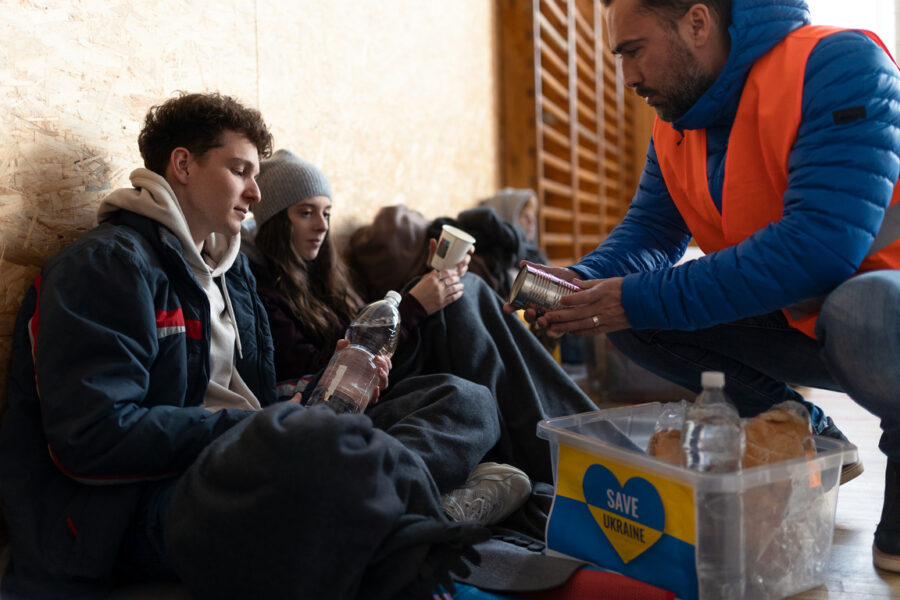War is a tragic and destructive phenomenon that leaves a profound impact on societies, communities, and individuals. Among the most vulnerable and affected groups are young people. The consequences of war on the physical and mental well-being of youth are far-reaching, shaping their lives and futures in significant ways. In this article, we will explore the multifaceted effects of war on young people, focusing on the challenges they face, the resilience they demonstrate, and the importance of support systems in helping them overcome the trauma of conflict.
Psychological Trauma
One of the most immediate and enduring impacts of war on young people is the psychological trauma it inflicts. Exposure to violence, loss of loved ones, and the constant threat of danger can lead to a range of mental health issues, including:
- Post-Traumatic Stress Disorder (PTSD): Many young people who have experienced war exhibit symptoms of PTSD, such as flashbacks, nightmares, and hypervigilance.
- Depression and Anxiety: The ongoing stress and uncertainty of war can contribute to depression and anxiety disorders among youth.
- Desensitization to Violence: Prolonged exposure to violence can desensitize young people to its consequences, impacting their emotional development.
Disruption of Education
War disrupts the educational opportunities of young people in multiple ways:
- School Closures: Conflict often leads to the closure of schools, depriving youth of access to education.
- Displacement: Many young people become refugees, living in makeshift camps where educational resources are scarce.
- Loss of Teachers and Peers: The loss of teachers and classmates due to violence can further hinder the learning process.
Forced Recruitment and Child Soldiers
In some conflict zones, young people, particularly boys, are forcibly recruited as child soldiers. This harrowing experience robs them of their childhood, exposes them to violence, and forces them to commit acts they may deeply regret.
Loss and Grief
War brings profound loss and grief, which young people often struggle to cope with:
- Loss of Family Members: Many young people lose parents, siblings, or extended family members, leaving them orphaned and without emotional support.
- Disrupted Relationships: Separation from loved ones due to displacement or migration can strain relationships and create a sense of isolation. Young people tend to use hookup apps because of this.
Economic Hardship
War can lead to economic instability, making it difficult for young people to access basic necessities and plan for their futures:
- Poverty: Economic instability and job loss can lead to poverty, limiting young people’s opportunities for advancement.
- Displacement and Homelessness: Some young people become internally displaced or homeless, facing additional challenges in accessing education and healthcare.
Building Resilience
Despite the immense challenges they face, young people in conflict zones often demonstrate remarkable resilience. Resilience-building strategies include:
- Community Support: Support from family, friends, and community networks can provide young people with emotional strength and a sense of belonging.
- Education Programs: NGOs and international organizations often provide education and vocational training programs for youth affected by conflict.
- Psychosocial Support: Access to mental health and psychosocial support services can help young people cope with trauma and develop healthy coping mechanisms.
Peacebuilding Initiatives
Efforts to end conflict and promote peace are crucial for creating a safer environment for young people. These initiatives include:
- Conflict Resolution: Promoting peaceful conflict resolution methods and dialogue can reduce the prevalence of violence in conflict-affected areas.
- Education Initiatives: Rebuilding schools and creating safe spaces for learning help young people regain access to education.
- Youth Involvement: Engaging young people in peacebuilding and reconciliation processes empowers them to be agents of positive change in their communities.
Conclusion
War has profound and enduring effects on young people, impacting their mental health, education, and overall well-being. Yet, despite the challenges they face, many youth in conflict zones demonstrate incredible resilience and strength. The international community must prioritize their needs, providing access to mental health services, education, and economic opportunities. By investing in the future of young people affected by war, we can help them rebuild their lives, contribute to peacebuilding efforts, and create a more stable and hopeful world for generations to come.


